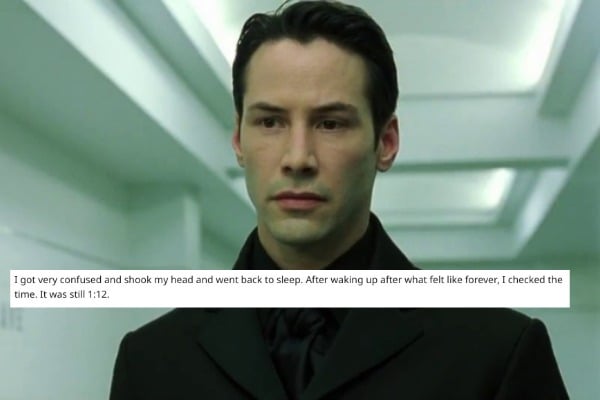

And you can chatter with your friends about it from your basement! (I’m talking to you, 45-year-old “Matrix” fanboy and simulation-theory addict.) (In “The Wizard of Oz,” the black-and-white Kansas sequences are “real,” but it’s the madly colorful action in Oz that’s real.) If you can just pop the right pill, or get to the right website, the truth - that it’s all an illusion! - will be there, and it will set you free. Then again, if you really want to unplug from the matrix, you might just go out on a limb and declare the following: that simulation theory, while fun to think about, is basically a crock - a debased product of a fantasy-fixated culture, which encourages people, more and more each day, to project their identities into avatars, to get lost in comic-book video-game worlds they think are “real,” and to regard their own lives as the dull, sad ones they’re stuck inside. If “A Glitch in the Matrix” is evidence, simulation theory is now threatening to turn a whole lot of us into Bill and Ted. Elon Musk says reality isn’t real! Whoa! Where can I sign up!? It’s hardly incidental that “The Matrix” starred Keanu Reeves.

#Glitch in the matrix mod#
We see clips of Musk on a talk show saying, “The odds that we’re in base reality is one in billions.” What his minions don’t understand is that he’s selling himself as an out-of-the-box mod futurist. Elon Musk is their tycoon celebrity hero. It’s got animated sequences that are like puckishly staged video games, and it features an ironic cast of giddy talking-head incels - a total arrested boys’ club, alternately fascinating and annoying.
#Glitch in the matrix movie#
The movie takes the pulse of how science fiction has merged with our imaginations. “ A Glitch in the Matrix,” the new documentary directed by Rodney Ascher, who made the thrilling cinehaulic conspiracy-theory deep dive “Room 237” (which was about people who think that hidden messages are encoded in Stanley Kubrick’s “The Shining”), gives each of those metaphors a workout.

You could also call it a rabbit hole, a looking glass, or this generation’s acid trip - a chemistry-free way of turning reality inside out. You might describe that as a philosophical stance, one that can be traced back to Descartes or even the parable of Plato’s Cave. There are words, and many metaphors, one could use to describe simulation theory: the belief, popularized two decades ago by “ The Matrix,” that the life we’re living - the people we know, the experiences we have, what we see, touch, think, and feel - is literally an illusion, an artificial façade orchestrated by minds far more developed than our own.


 0 kommentar(er)
0 kommentar(er)
